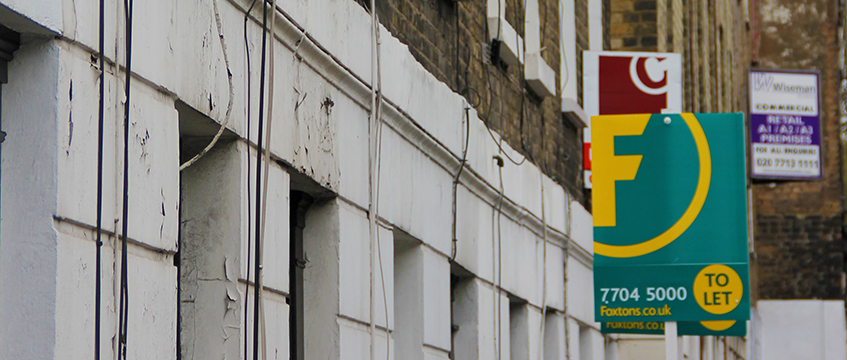Lauren Addy examines the new piece of legislation, which received royal assent on 12 February and is set to shake up the residential letting market this summer.
Against a backdrop of daily headlines about our “housing crisis”, the Tenant Fees Act 2019 (the Act) comes into force on 1 June 2019, with the aim of improving transparency and affordability in the residential lettings market for the 4.7m private rented sector households in England. It bans various fees often charged to tenants – including for reference checks, key collection, late rent reminders, inventories and exercising break clauses – and caps payments which continue to be allowed.
Government research indicates that fees charged have far outstripped inflation, rising by 60% between 2010 and 2015, and that the Act will save tenants £240m per year, equivalent to £70 per household.
The Act applies to assured shorthold tenancies (ASTs) (excluding social housing and long leases), student leases and most licences to occupy (collectively referred to as “tenancies” in this article). For the first year of its life the Act will only apply to new tenancies, but from 1 June 2020 it will apply to all existing tenancies. Note that the Act applies only in England. Welsh authorities are in the process of drawing up their own similar legislation, and restrictions on residential fees have existed in Scotland since 1984.
Permitted fees
Rather than specifying which fees are banned, the Act prohibits all payments except those which are permitted. This approach is intended to remove potential loopholes through which the spirit of the legislation could be abused.
Prohibited payments will only be illegal if they are required; landlords and agents can accept payments that would otherwise be prohibited where a tenant has been given a choice between making the payment and something else permitted under the Act. For example, there is scope for a scheme of optional fees in return for slightly lower rent. The permitted payments are:
■ Rent: Sadiq Khan may be campaigning for the introduction of rent control, but landlords currently remain free to set rent levels. However, the Act does not allow rent “spikes” at the start of lease terms to offset agents’ letting fees that landlords, instead of tenants, will likely now have to pick up. This does not prevent landlords from increasing rent evenly throughout the term, but it will at least smooth rent payments for which tenants are liable.
■ Refundable tenancy deposits: deposits to compensate the landlord for breaches of the terms of the tenancy must now be capped at five weeks’ rent where the annual rent is less than £50,000, or six weeks’ rent if the annual rent is £50,000 or more. The current average deposit is 4.9 weeks’ rent; time will tell as to whether deposits of five or six weeks’ rent will become the norm rather than the maximum. Legislation requiring deposits to be held via protected schemes remains unchanged.
■ Holding deposits: if a tenancy is granted, any holding deposit paid by the tenant must be capped at one week’s rent and returned within seven days or otherwise set off against the rent or tenancy deposit. If the tenancy is not granted within 15 days of payment of the holding deposit (or such longer period as the parties agree), it must be returned unless the prospective tenant chooses not to proceed, fails “Right to Rent” checks or provides false or misleading information, or if the landlord or agent has taken all reasonable steps to enter into the tenancy but the tenant has not done the same. What constitutes “all reasonable steps”, or whether false information mistakenly provided by tenants will allow landlords and agents to retain holding deposits, is unclear. Hopefully the government’s planned guidance to accompany the Act will clear this up.
■ Default payments: default fees are only permitted for rent which is more than 14 days late or replacement of lost keys, and only if the tenancy document requires these default fees to be paid. In respect of late rent, the fee must not exceed interest on the sum due at a rate of 3% above base from the due date until payment. Fees for replacement keys must be reasonable and reflect the cost incurred by the landlord/agent as a result of the loss.
■ Payments on variation, assignment, novation or termination at the tenant’s request: fees for variation, assignment or novation are capped at the higher of £50 or the reasonable costs incurred. Fees for early termination are limited to the loss suffered by the landlord and the reasonable costs of the agent.
■ Payment in respect of council tax, utilities, TV licences or communication services.
Remedies
Enforcement remedies include fines of £5,000 or, in the case of repeat breaches within five years, criminal liability, banning orders and fines of up to £30,000. Lease terms requiring prohibited payments are not binding, but where tenants have paid unlawful fees, they can seek to recover them via the courts. Further, a landlord who has not repaid a prohibited payment to an AST tenant cannot use section 21 of the Housing Act 1988 to regain possession of their property at the end of the term. Enforcement responsibility falls to Trading Standards and district councils – unsurprisingly, there are concerns about their ability to fulfil their role due to lack of funding.
Rent on the rise?
The increasing number of private sector residential renters, who move on average every 3.9 years, will welcome the new law. Time will tell though as to whether the Act will simply prompt rent hikes by landlords who are feeling the pinch from recent stamp duty land tax increases and the withdrawal of mortgage interest rate relief.
Lauren Addy is a senior associate at Hogan Lovells









